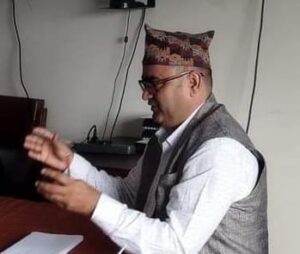Dear Esteemed Readers and Contributors,
Greetings!
We are delighted to announce the release of the third quarterly edition of ELT Choutari (July-September 2024), dedicated as a special issue focusing on “English Medium Instruction (EMI) Policies and Practices in Nepal.”
EMI policy represents a significant area of study in applied linguistics, both domestically and internationally. Its implementation spans beyond private and urban schools to include community schools in rural areas, sparking diverse perspectives on its creation and application. Many scholars are actively researching various aspects of EMI policy and practices in Nepal, prompting us to dedicate this special issue to exploring these themes.
This edition features an exclusive interview with four distinguished scholars—Associate Professor Dr. Bal Krishna Sharma, Professor Dr. Bal Mukunda Bhandari, Professor Dr. Tara Datta Bhatta, and Professor Dr. Binod Luitel—who discuss the multifaceted dimensions of EMI as a research topic, current research trends, and future directions for novice scholars in this field.
Additionally, the issue includes four scholarly papers by devoted researchers:
Deviram Acharya examines how the proliferation of EMI schools exacerbates inequality in learning access, quality, and educational relevance, often as a shield against criticism rather than a response to parental aspirations.
Nirmala Dhami explores issues students face, including cultural marginalization, inadequate language skills, and insufficient instructional resources. EMI tends to favour wealthier urban students, widening the rural-urban educational gap and jeopardizing linguistic diversity and cultural identities.
Dinesh Panthee critically reflects on how community schools, driven by parental and student demand for English learning, face constitutional challenges regarding fee imposition, thus compromising educational rights.
Dr. Tekmani Karki provides insights into the impacts of EMI in rural settings, highlighting the challenges and opportunities of its implementation in rural education systems, drawing from reflections on his PhD journey.
For your convenience, here are the hyperlinks to the articles:
- Scholars’ Perspectives and Reflections on English Medium Instruction (EMI) Research in Nepal by Associate Professor Dr. Bal Krishna Sharma, Professor Dr. Bal Mukunda Bhandari, Professor Dr. Tara Datta Bhatta, and Professor Dr. Binod Luitel
- EMI as Panacea of Education Reform by Deviram Acharya
- Social Justice and Equity Issues in EMI policy and pedagogy by Nirmala Dhami
- Implementation of English as a Medium Instruction at Local Level by Dinesh Panthee
- Implementation of English Medium Instruction (EMI) Policy: Observation and Reflection by Dr. Tekmani Karki
Lastly, we extend heartfelt gratitude to our co-editor, Karuna Nepal, and all our editors and reviewers—Jeevan Karki, Ganesh Kumar Bastola, Mohan Singh Saud, Dr. Jnanu Raj Poudel, Sagar Poudel, Binod Duwadi, Puskar Chaudhary, Yadu Gnawali, and Dasharath Rai—for their dedicated efforts in bringing this issue to completion.
ELT Choutari is a platform for researchers, scholars, educators, and practitioners to share insights, practices, and narratives from classrooms and communities. We invite you to contribute to our upcoming anniversary issue (October-December 2024) by submitting your articles and blogs to 2elt.choutari@gmail.com.
If you find value in the interviews, articles, and reflective pieces, please share them within your circles and feel free to leave your comments below each piece.
Happy Reading! Thank you.

Nani Babu Ghimire, Lead Editor of the Issue

Karuna Nepal, Co-Editor of the Issue